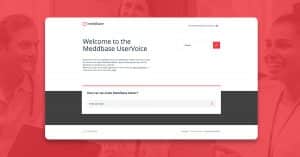EHRs have greatly improved how we manage patient information. They aid in clinical decision-making, improve patient safety, streamline coordination of services, offer administrative support and facilitate research and regulatory processes. Unlike the paper record that was severely limited in accessibility, and prone to lengthy updating processes, EHRs are incredibly fluid, easy to interact with and derive insights from.
However, along with these advancements come critical responsibilities in managing patient privacy within the electronic ecosystem.
Ethical Considerations in EHR Management
A key tenet in EHR management is the maintenance of patient confidentiality. Patients trust healthcare providers with sensitive information, expecting it to be handled discreetly. It’s the responsibility of these providers to implement security measures like encryption, access controls and regular audits to safeguard patient data from breaches or cyber threats.
Healthcare professionals must also exercise discretion when accessing patient records, ensuring information is only retrieved on a need-to-know basis. This not only upholds patient trust and protects individual privacy but also strengthens the integrity of the healthcare system, fostering a stronger bond between patients and providers.
Another vital aspect is the appropriate use and disclosure of patient information. Providers must be transparent with patients about how their data will be used and shared, adhering to strict ethical guidelines. Patient information should only be released with their consent or as permitted by law. Striking a balance between data accessibility and patient confidentiality requires careful consideration.
Adherence to regulatory frameworks like the Health Insurance Portability and Accountability Act (HIPAA) is also crucial. HIPAA outlines ethical standards for handling patient data, including rules on data sharing with patients, their proxies and external entities. For example, under HIPAA’s Privacy and Security Rules, employers are accountable for their employees’ missteps in handling patient data. In 2011, employees working for a provider in the US were found to have gained unauthorised access to patient data, resulting in the provider paying a hefty fine.This scenario illustrates how important it is that employers safeguard patient data.
Guidelines for Privacy and Confidentiality in EHR
Access Control:
Implementing robust controls is critical to restricting unauthorised access to sensitive patient information stored in EHR systems.
Role-based permissions and authentication mechanisms help enforce strict access policies, ensuring that only authorised personnel can view or modify patient records.
With granular access controls, healthcare organisations can mitigate the risk of insider threats and data breaches, preserving patient confidentiality and privacy within the EHR environment.
Fine-tuning patient consent requirements:
Healthcare providers are obligated to secure informed consent before accessing or sharing electronic health records, to uphold patient autonomy and protect their sensitive data.
When using and accessing patient data, it is important that practices remember that they co-own the data with the patients, and that they (the patients) are entitled to oversee the utilisation and disclosure of their records. Therefore, caregivers must provide comprehensive information regarding the purpose, extent, and potential hazards associated with the sharing of their data.
Before disseminating confidential private information, practices should create explicit and detailed consent documentation delineating the fate and purpose of the shared data, and always keep in mind that patients have the right to withdraw consent at their discretion.
Risk Assessment and Mitigation:
Conducting regular risk assessments is imperative to identify vulnerabilities in EHR systems and implement appropriate risk mitigation strategies.
When providers proactively assess potential risks, they can preemptively address security gaps and vulnerabilities, minimising the likelihood of data breaches or privacy incidents.
Incorporating risk mitigation strategies such as software updates and security patches into their regular workflows enhances the resilience of EHR systems, safeguarding patient data against evolving threats.
Data Breach Response Plan:
A well-defined response plan outlines the steps to be taken in the event of a data breach, including incident reporting, containment measures, forensic analysis and communication protocols.
By proactively preparing for potential breaches, practices can minimise the impact on patient privacy and confidentiality, demonstrating a commitment to ethical and responsible EHR data management.
Continuous Training and Education
Training programs aimed at improving healthcare professionals’ comprehension of ethical principles concerning EHR usage and disclosure should prioritise key topics like patient privacy, informed consent and data security. They must also address the legal and regulatory mandates governing EHR management, ensuring practitioners understand their duties and obligations clearly.
To optimise training efficacy, a blend of didactic instruction and hands-on exercises is recommended. Didactic teaching provides a theoretical groundwork, covering ethical principles, legal mandates and EHR management best practices. On the other hand, practical exercises such as case studies and role-playing scenarios enable healthcare professionals to apply their learning and hone their ethical decision-making skills.
Conclusion
The effective management of patient consent, confidentiality, and privacy within EHR is essential for maintaining trust and integrity in healthcare.
When practices prioritise transparency by implementing robust security measures and adhering to ethical and legal guidelines they can safeguard patient data while delivering high quality care.
Continued vigilance, education and adaptation are crucial as technology evolves, ensuring that patient welfare remains at the forefront of EHR management practices.




